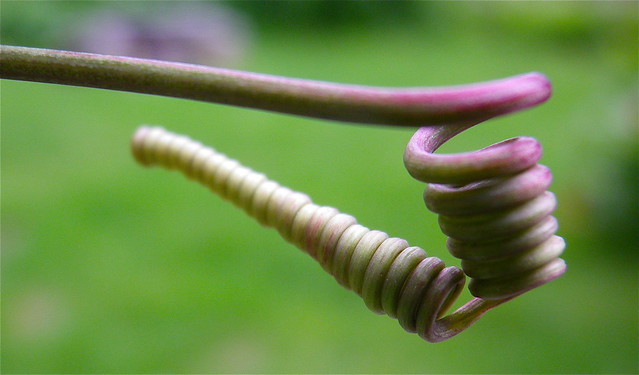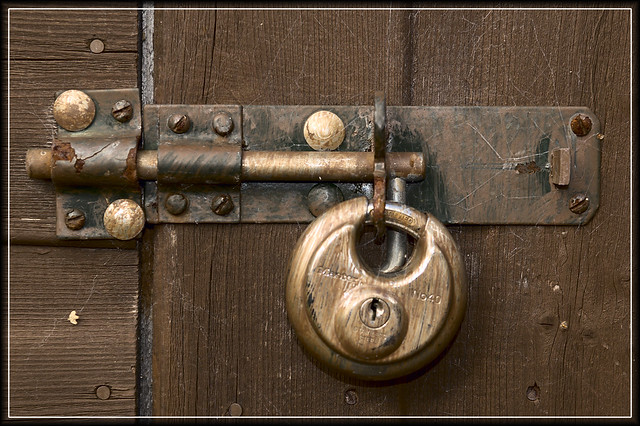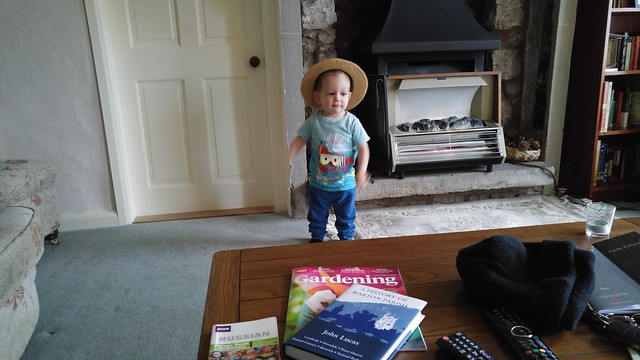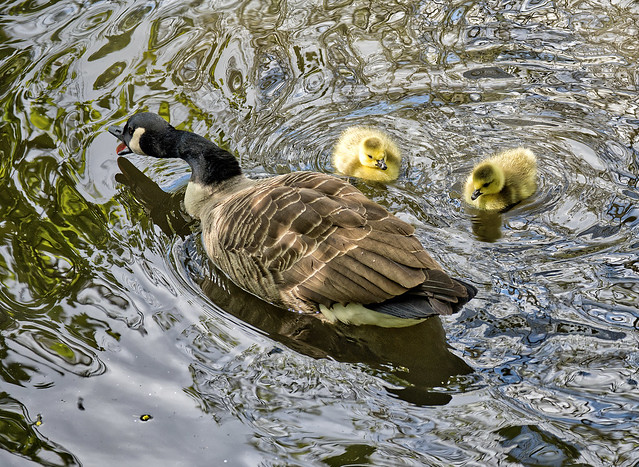Today we’re looking at the words for crooked and twisted and related things in Celtic languages.
| Proto-Celtic | *kambos = twisted, crooked, bent |
|---|---|
| Gaulish | Cambo- = found in place names |
| Old Irish (Goídelc) | camm, cam [kam] = crooked, bent, curved, twisted; wavy, curly (hair) |
| Irish (Gaeilge) | cam [kaumˠ / kɑːmˠ / kamˠ] = bend, bent, crooked, crookedness, fraud object; to bend, crook, distort camadán = bent, crooked (person or thing) camadh = to bend camalanga = unintelligible talk camalóid = high-backed, humped (animal), tall stooped person camán = hurling-stick, hurley, bent, crooked, object, quaver camarsach = wavy, curled camas = small bay, curve; (river) bend |
| Scottish Gaelic (Gàidhlig) | cam [kaum / kaimə] = bent, crooked, awry, not straight, squinty, wry, one-eyed; bend, curve, trick cama-chasach = bow/bandy-legged cam-chòmhdhail = awkward meeting. misadventure cam-bheulach = wry-mouthed camadh = bending, curving, curve, curvature, crook, variant, variation camaghaileach [kamaɣaləx] = twisted, winding caman = club, stick, shinty stick, quaver camanachd = shinty |
| Manx (Gaelg) | cam = bent, crooked, deceitful, intricate, knotty, perverse, rakish, wry, wrong cam-hooilagh = cross-eyed, squinting cam-jeeragh = meandering, tortuous camlurgey = bowlegged, bandy-legged |
| Proto-Brythonic | *kam = crooked, bent |
| Old Welsh | cam = crooked, bent |
| Middle Welsh (Kymraec) | cam = crooked, bent |
| Welsh (Cymraeg) | cam [kam] = crooked, bent, hunch-backed, distorted, wry, bowed, curved, looped, winding; one-eyed, squint-eyed; wrong, evil, false, unjust, deceitful; misdeed, sin, vice, injustice, injury ar gam = in error, erroneously, unjustly, falsely, astray, amiss ar y cam = in the wrong, culpable yng ngham = wrong, wrongly, unjustly, in error, faulty camgymeriad = mistake, misapprehension, misconstruction, error camni, cami = crookedness, crook, curvature, twist camog = crookedness, curvature, hump-backed person camu [ˈkamɨ / ˈkami] = to bend, stoop, curve, bow, pervert, distort, abuse |
| Middle Cornish | cam = crooked, wry, distorted, squint-eyed, perverse, wrong, wicked camgarrec = bandy-legged camma = to bend, curve, make crooked; trepass camnivet = rainbow camwul = to do wrong |
| Cornish (Kernewek) | kamm = bent, crooked, erroneous, error, wrong kamma = to curve kammas = bay, bend kammdremena = to trespass kammdreylya = to zigzag kammdybi, kammwul = to err kammgemeryans = mistake kammgonvedhes = to misunderstand kammhynsek = unjust, unrighteous, wicked |
| Old Breton | cam(m) = curved, curve, lame, bad, wicked camaff = to bend, limp |
| Middle Breton | kamm = curved, curve |
| Breton (Brezhoneg) | kamm = angled, bent, bend kammadur = bending, camber, cambering kammañ = to arch kammigell = zigzag, squabble, chicane kammigellañ = to zigzag |
Etymology: from the Proto-Indo-European *kh₂em- (to arch), from *(s)ḱh₂embos (crooked) [source].
The Gaulish version of the word appears in the place name Cambo-dunum, also written Kambodunon, which became Campodūnum in Latin, which was a town in the Roman province of Raetia, and is now Kempten in Bavaria in southern Germany [source].
The name Campbell comes from the Scottish Gaelic Caimbeul, from cam (crooked) and beul (mouth) [source], while Cameron comes from Camshròn, from cam (crooked) and sròn (nose) [source].
The Proto-Celtic word *kambos is the root of the Galician words camba (doorjamb of an oven, handmill), cambar (to bend), cambiar (to change) [source].
*kambos was possibly also borrowed into French as camus [ka.my] (flat-nosed, snub-nosed) [source], and this ended up in English as camous/camoys (flat, depressed, crooked nose) [source].
Other English words from the PIE root (*kh₂em-), include camera, camp, campus, champagne and champion [source].
| Proto-Celtic | *wēros = crooked |
|---|---|
| Old Irish (Goídelc) | fíar = bent, crooked, curved |
| Irish (Gaeilge) | fiar [fʲiəɾˠ] = slant, tilt, bias, obliquity, bend, twist, crookedness, perverseness; slanting, tilted, oblique, diagonal fiaradh to slant, tilt |
| Scottish Gaelic (Gàidhlig) | fiar [fiər] = bent, crooked, squint, wry, oblique, perverse fiaragach = slanted, twisted, touchy fiaranaich = slant fiaradh = slanting, slant, distorting, skewing, distortion fiarach = inclinning, slanting fiaras = crookedness |
| Proto-Brythonic | *gwuɨr = crooked, bent |
| Middle Welsh (Kymraec) | gvir, gwyr [ɡwɨr] = crooked, bent |
| Welsh (Cymraeg) | gŵyr [ɡuːɨ̯r/ɡʊi̯r] = askew, slanting, oblique, aslant, cross(-eyed), squinting, crooked, curved, bent, distorted, unjust, dishonest, wrong, evil; wickedness, error, wandering, twist gwyrio = to bow, stoop, bend, lean, incline, slant, slope gwyraidd = sloping, slanting, stooping |
| Cornish (Kernewek) | gwarr = curve gwarak = arch, arc, bow, crescent |
| Middle Breton | goar = curved, curve |
| Breton (Brezhoneg) | gwar = curved gwared = arch |
Etymology: from the Proto-Indo-European *weh₁iros (turned, twisted), from *weh₁y- (to twist, wrap) [source].
Words marked with a * are reconstructions.
Sources: Wiktionary, Am Faclair Beag, Online Manx Dictionary, Teanglann.ie, eDIL – Electronic Dictionary of the Irish Language, In Dúil Bélrai English – Old Irish glossary, Geiriadur Prifysgol Cymru, Gerlyver Kernewek, Gerlyvyr Cernewec, Dictionaire Favereau, TermOfis, Le dictionnaire diachronique du breton, Geriafurch, English – ProtoCeltic WordList (PDF), Etymological Dictionary Of Proto Celtic












